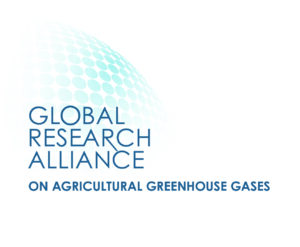Thinkstep-anz Pty Ltd. and Thünen Institute of Market Analysis

Selected Topic
Reducing food loss and waste.
Project Description
According to the FAO, approaching SDG 12.3 “Halving food waste and reducing food losses by 2030” would also have a positive impact on 13 other SDGs. Through measures such as reducing post-harvest losses, establishing and expanding cold chains, adequate storage structures, optimizing process chains, cooperation in the supply chain and educating consumers, more high-quality food is available regionally, resources are saved and supply chains becoming more resilient and sustainable. This can reduce costs in the long term and improve access to food, which in the models used also has an impact on reducing global hunger. The aim of the stand as part of the innovation forum is not only to present the initiative’s cooperation, but also the activities of the partner organizations in their countries. A GFFA expert panel was submitted with colleagues from Brazil, Germany and Zimbabwe, the depth of information from which will be increased by the stand and expanded to include other cooperating countries and organizations. If the submission is selected, print materials, posters and other media are planned as sources of information. An exemplary coverage along the entire value chain on all five continents can be expected. Multilingual informants are available for the international audience and can answer questions in at least 7 languages.
About the Institution
thinkstep-anz is an environmental consultancy founded in 2006 in Perth, Western Australia as a subsidiary of PE International. Today, more than 50 passionate experts in Australia and New Zealand care not only about doing the right thing, but also about doing things right. We work with farmers, food industry associations, and government agencies to ensure that we produce sufficient food and sustainably. Our work include environmental impact assessment, product footprint assessment and life cycle assessments.
Contact Person: Dr. Felicitas Schneider



Selected Topic
Reducing food loss and waste.
Project Description
According to the FAO, approaching SDG 12.3 “Halving food waste and reducing food losses by 2030” would also have a positive impact on 13 other SDGs. Through measures such as reducing post-harvest losses, establishing and expanding cold chains, adequate storage structures, optimizing process chains, cooperation in the supply chain and educating consumers, more high-quality food is available regionally, resources are saved and supply chains becoming more resilient and sustainable. This can reduce costs in the long term and improve access to food, which in the models used also has an impact on reducing global hunger. The aim of the stand as part of the innovation forum is not only to present the initiative’s cooperation, but also the activities of the partner organizations in their countries. A GFFA expert panel was submitted with colleagues from Brazil (Embrapa), Australia (thinkstep anz) and Zimbabwe, the depth of information from which will be increased by the stand and expanded to include other cooperating countries and organizations. If the submission is selected, print materials, posters and other media are planned as sources of information. An exemplary coverage along the entire value chain on all five continents can be expected. Multilingual informants are available for the international audience and can answer questions in at least 7 languages.
About the Institution
The Collaboration Initiative Food Losses and Waste was launched at the Meeting of Agricultural Chief Scientists G20 in 2015. The coordinator of the international initiative is based at the Thünen Institute of Market Analysis and has been working in the subject area since 2001. Aim is to support the planning, implementation and monitoring of measures to prevent food loss and waste within and outside the G20. The expertise obtained is free of charge for the partners. The collaborations include, among others, capacity building, planning scientific projects, method development, publishing scientific results, policy advice, events for various target groups, supervision of students, exchange of expertise. With the initiative’s global expert database, FLW specialists can be found with just a few clicks, without having to spend time searching in scientific journals. As of October 2023, 166 experts from 41 countries are registered in the database. Together with the respective G20 presidency country, the initiative organizes annual regional workshops on FLW in order to promote networking and exchange. Since 2017, 750 participants from 86 countries have been reached in 6 events. The partners present selected collaborations with the initiative as well as their own topic-related activities in the initiative’s annual report as co-authors.
Contact Person: Dr. Felicitas Schneider
